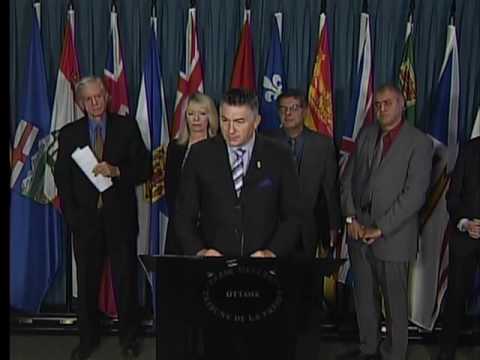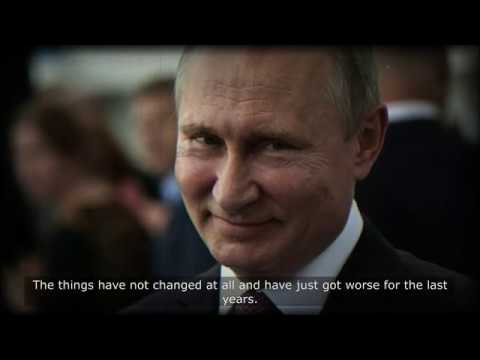Canada is the first country to recognize the 1988 massacre of 30,000 Iranian prisoners as a war crime. Iranian Canadian activists are urging the country to go a step further in its condemnation of Iran.
The abuse of human rights in Iran is not a new problem, but it is getting worse.
According to the UN Secretary General’s latest report on the situation of human rights in Iran in September, there were at least 996 executions in 2015, the highest number in the past 20 years. Iran also regularly executes minors, women, and foreign nationals.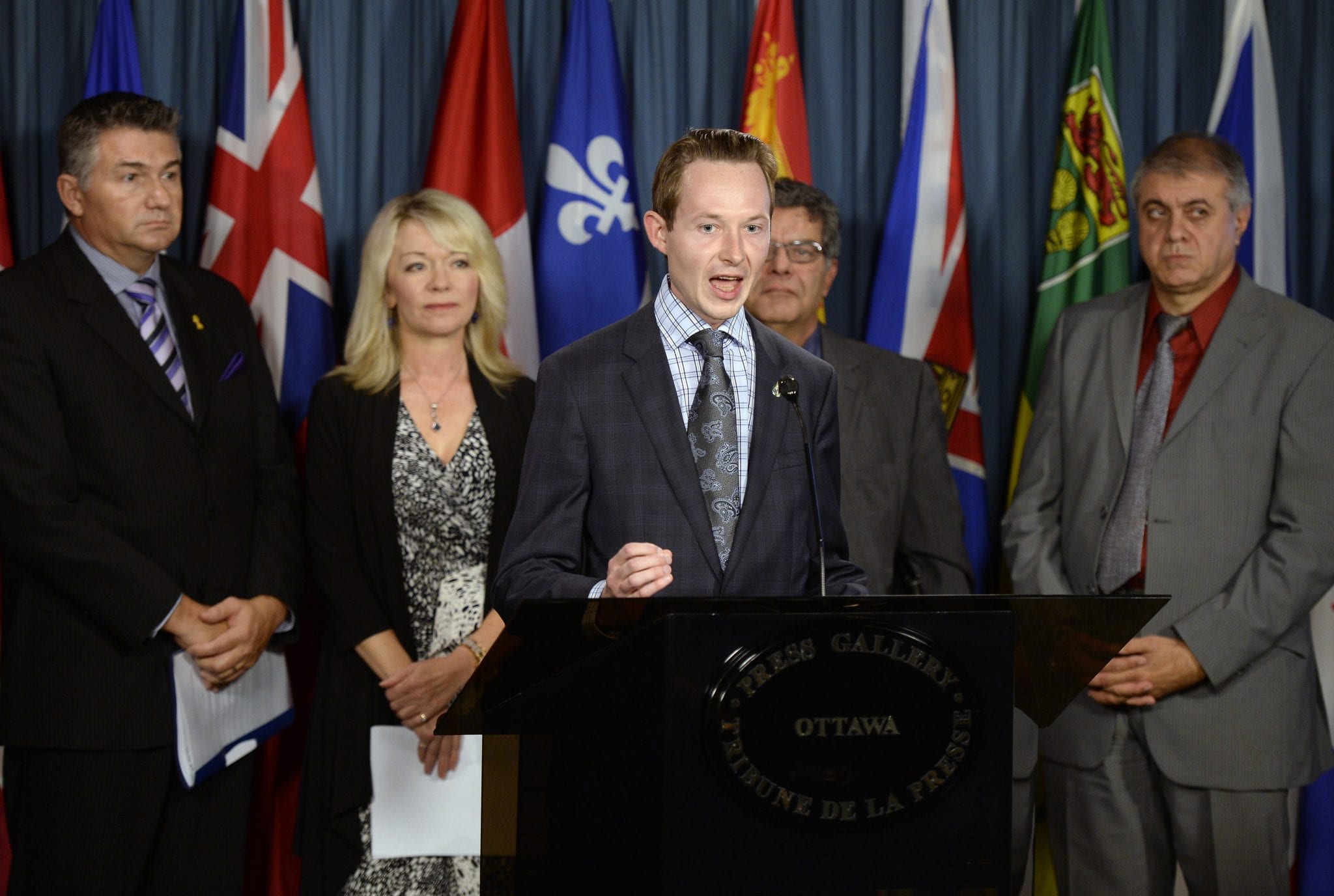
Canada since 2003, it has sponsored resolutions to condemn the country’s human rights record every year before the U.N. One of the driving forces behind this stance is Canada’s Iranian community, who have continually pushed for tougher stances by the Canadian government towards Iran.
One of their missions is to bring greater attention to the 1988 massacre of 30,000 political prisoners in Iran, and to bring the Iranian ministers who orchestrated the killings to justice. In 2013, Canada became the first country to officially label the massacre as a crime against humanity.
Shahram Golestaneh, spokesman for the Iran Democratic Association provided new details about dozens of officials involved in the massacre and some secret mass graves where they were buried.
He added: “According to information compiled by the National Council of Resistance of Iran (NCRI) from sources inside Iran, most of the institutions of the Iranian regime are run by the perpetrators of the 1988 massacre. In recent weeks, about 60 of the most senior officials responsible for this massacre, whose names had remained secret for nearly three decades have been identified. These individuals were members of the “Death Commissions” in Tehran and 10 other Iranian provinces.”
Canadian Friends for a Democratic Iran called for an international criminal investigation of the events of 1988 today during a press conference in the House of Commons, Parliament Hill, Ottawa.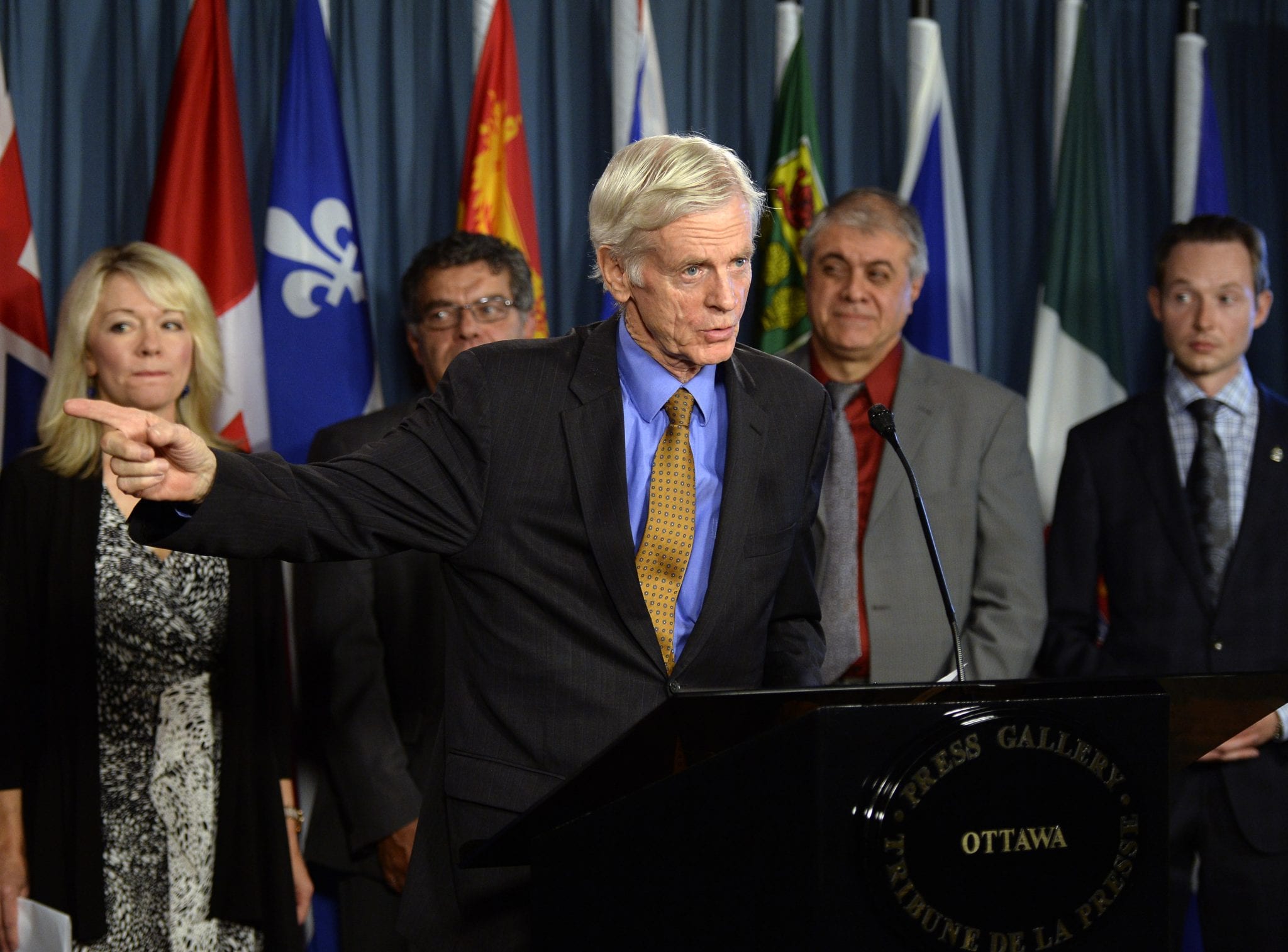
David Kilgour, Chairman of Canadian Friends of a Democratic Iran pointed out the leading role that Canada can play in the human rights field. He cited the example of South Africa under Apartheid, when Canada led the way to change the status quo. As a former lawyer, he stated that impunity should come to an end and Canada should stand up for accountability and the rule of law in the case of this crime against humanity.
The group notably used new evidence obtained after the publishing of a tape of Hussein-Ali Montazeri speaking openly with major Iranian officials about the 1988 massacre.
In the tape, Montazeri, who was at the time the anointed heir of Ayatollah Khomeini before being placed under house arrest for his dissidence, can be heard speaking to a “death council” consisting of several of the senior Iranian cabinet members who organized the massacre. In the tape he urges them to reconsider, telling them anecdotes about mothers and juveniles being executed in an attempt to sway them.
After Khomeini issued a fatwa decreeing that all who support the People’s Mojahiden of Iran (PMOI) were “waging war on God” and condemned to die, the organized killing began (Mojahiden refers to the People’s Mojahiden of Iran, or PMOI, the most significant resistance group in Iran at the time).
The Montazeri tape has increased the number of voices calling for justice for the victims’ families, as well as knowledge of the location of the secret mass graves where the victims were buried. Although the number of deaths and details about the massacre were already known, the tape revealed key details about the ministers who were involved–many of whom are still in power today, including Justice Minister Mustafa Pourmohammadi.
Michael Cooper, a Member of Parliament from Edmonton, reiterated that the Iranian regime executed children as young as 15 in the massacre of 1988. He stated that he stood with the Iranian Canadian community in commemorating 30,000 political prisoners mass murdered in 1988. He elaborated on the role of the Iranian regime in fighting in Syria, human rights abuses inside Iran, and funding terrorist groups such as Hezbollah. He said that if the massacre of 1988 taught us anything, it is that the Iranian regime is anything but normal.
Candice Bergen, Canada’s former Minister of State and Conservative MP pointed out the appalling human rights situation in Iran, particularly repression of women, as described in the recent report of the UN Secretary General.
She dismissed the notion of possible moderation under Iranian President Hassan Rouhani and said that the very same officials who are responsible for modern-day repressive measures were implicated in the 1988 massacre and represent both the hardline and “moderate” faction of the regime. She joined her colleagues in asking the Canadian government to implement the 2013 motion and to ask for a UN investigation.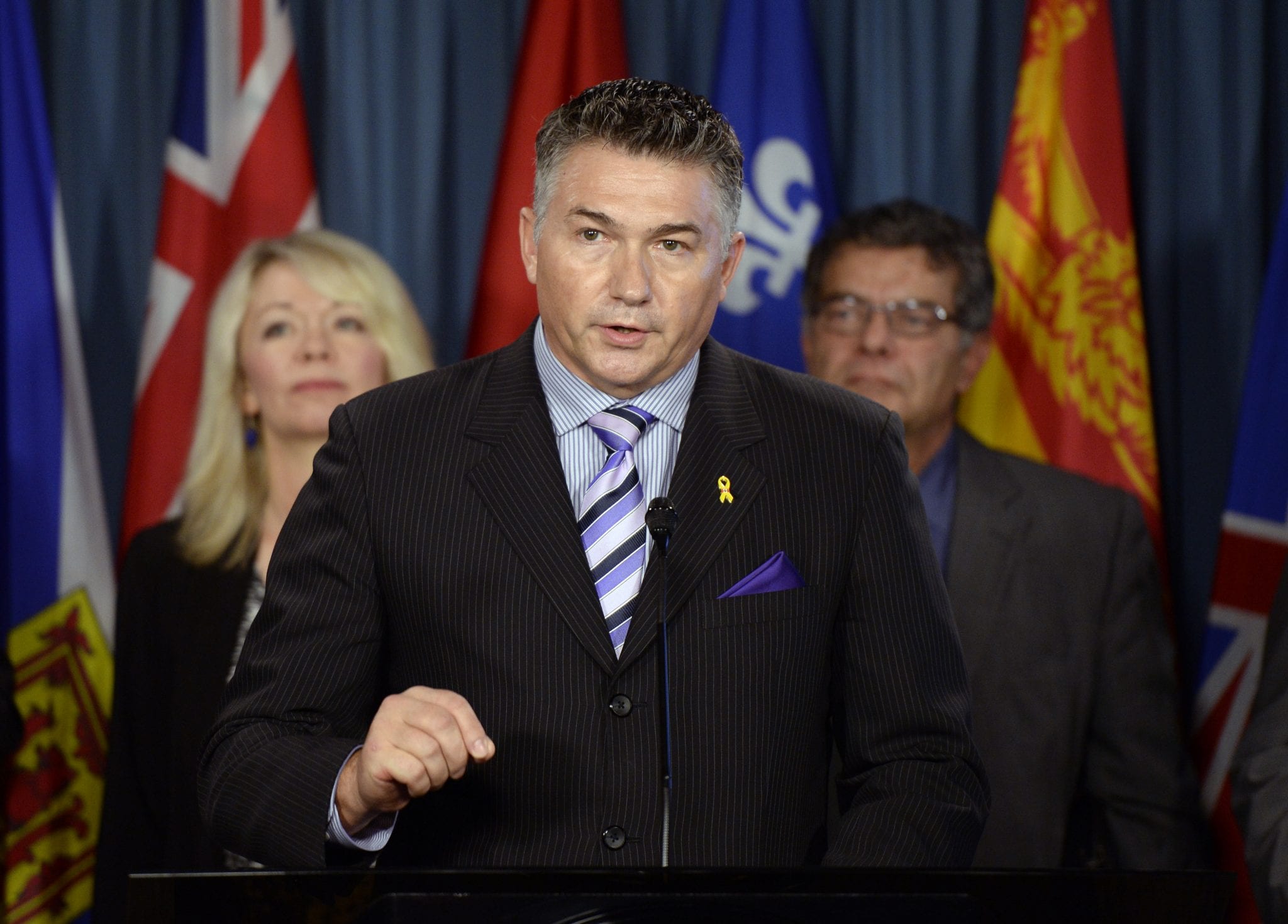
James Bezan, an influential voice in the Canadian Parliament on Iran human rights, used the press conference to praise the 2013 motion adopted by parliament. Bezan called for an end to impunity and urged the Canadian government to implement the motion and ask the UN to conduct an inquiry into this hideous crime.
